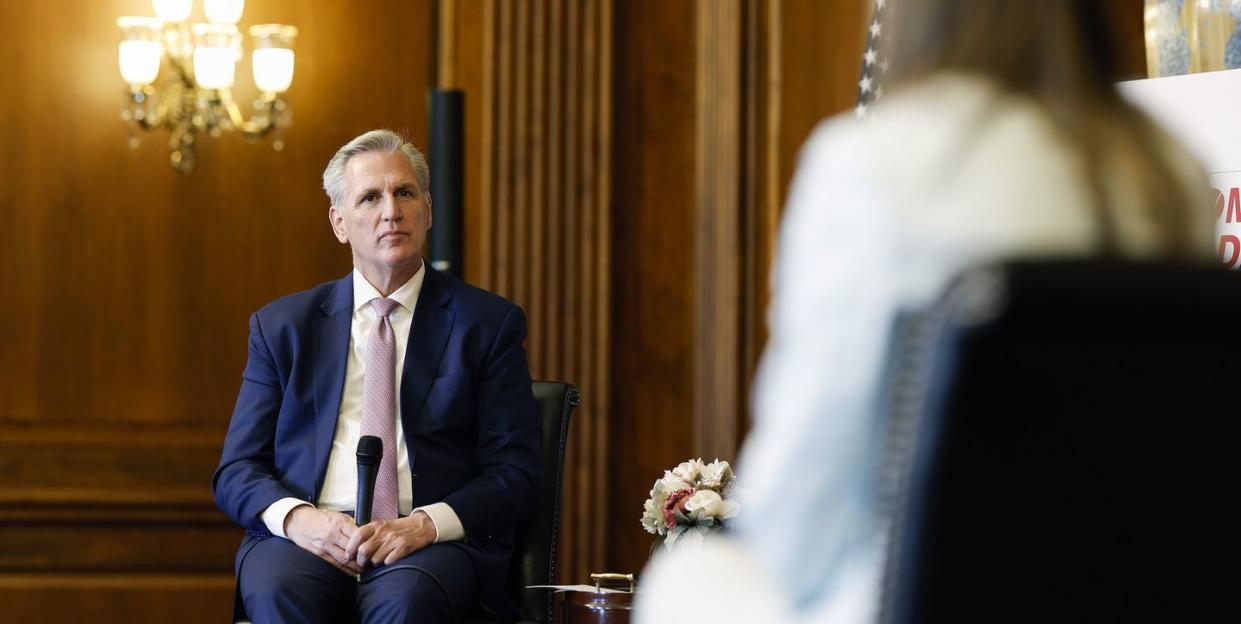Republicans Have No Debt Ceiling Demands Because This Is About the Performance of Conflict

Everything old is new again, so the big stupid thing currently animating American politics is The Debt Ceiling. For the umpteenth time, raising the debt ceiling does not authorize new spending. It authorizes the United States government to meet its debt obligations on spending that already happened. It's sort of like if you had to draft a formal letter informing Visa you intend to pay your credit card bill before paying the bill. That is to say, its existence is in no way necessary, and dealing with it is not a productive use of time. Naturally, it's a hot topic for the current Congress, in which House Republicans have revived their time-honored ploy of threatening to hold the debt ceiling hostage. Unnecessary as the mechanism may be, refusing to raise the ceiling would risk kicking off a global financial crisis, and the Madhouse of Representatives is demanding spending cuts in exchange for their cooperation in avoiding this very avoidable scenario.
The catch here is that House Republicans haven't actually made any demands, at least in terms of specific spending cuts. They've mused about cuts to Medicare and Social Security, then backtracked and said those are off the table. A few have talked about cutting defense spending, a refreshing bit of consistency with regard to assessing our debt issues—we spend $7 trillion or more per decade there—but that's also off the table. The only thing truly on the table is more vague and amorphous rhetoric about the horrors of Our National Debt.

Dedicated observers might point out that Republicans had the chance to negotiate spending cuts in the omnibus spending bill they acceded to in December, a bit of cooperation that got them pilloried in the right-wing media. Since they control the lower chamber of Congress, they could simply refuse to pass the next spending bill unless it contains the cuts they desire—though we shouldn't rule out that they will also, at some point, shut down the government. (I won't be booking any trip to a national park later this year.) But instead, they're all about the debt ceiling. At least one member of Congress is fully committed to voting against raising it no matter what. While his colleagues have taken a hostage without making any demands, he actually has no demands. He's just promising to shoot the hostage.
This is because it's not actually about the debt or the spending. It's about the performance of conflict. In some cases, these members of Congress have really gone 'round the bend and are just fully committed, in a philosophical way, to scorched-earth politics as an end in itself. In others, they are merely trying to satisfy The Base's desire to see them battle the various Enemies. (To do that, they'll need to satisfy the various luminaries of Fox News primetime. There is no reason to believe the broad American public, which denied Republicans the Senate and handed them a narrow House majority primarily via some purple seats in New York, have handed them a mandate to do some hostage-taking.) Depending on your level of concern, you may see this as introducing aesthetics to political life—never a good sign—or just reckless know-nothings on parade. It predates Donald Trump, though he elevated Performance Conflict to a dark art form. We're in dangerous territory when sticking it to Those People is a greater virtue for a big chunk of the body politic than maintaining the full faith and credit of the United States government, which just happens to undergird the world financial system.
You Might Also Like

